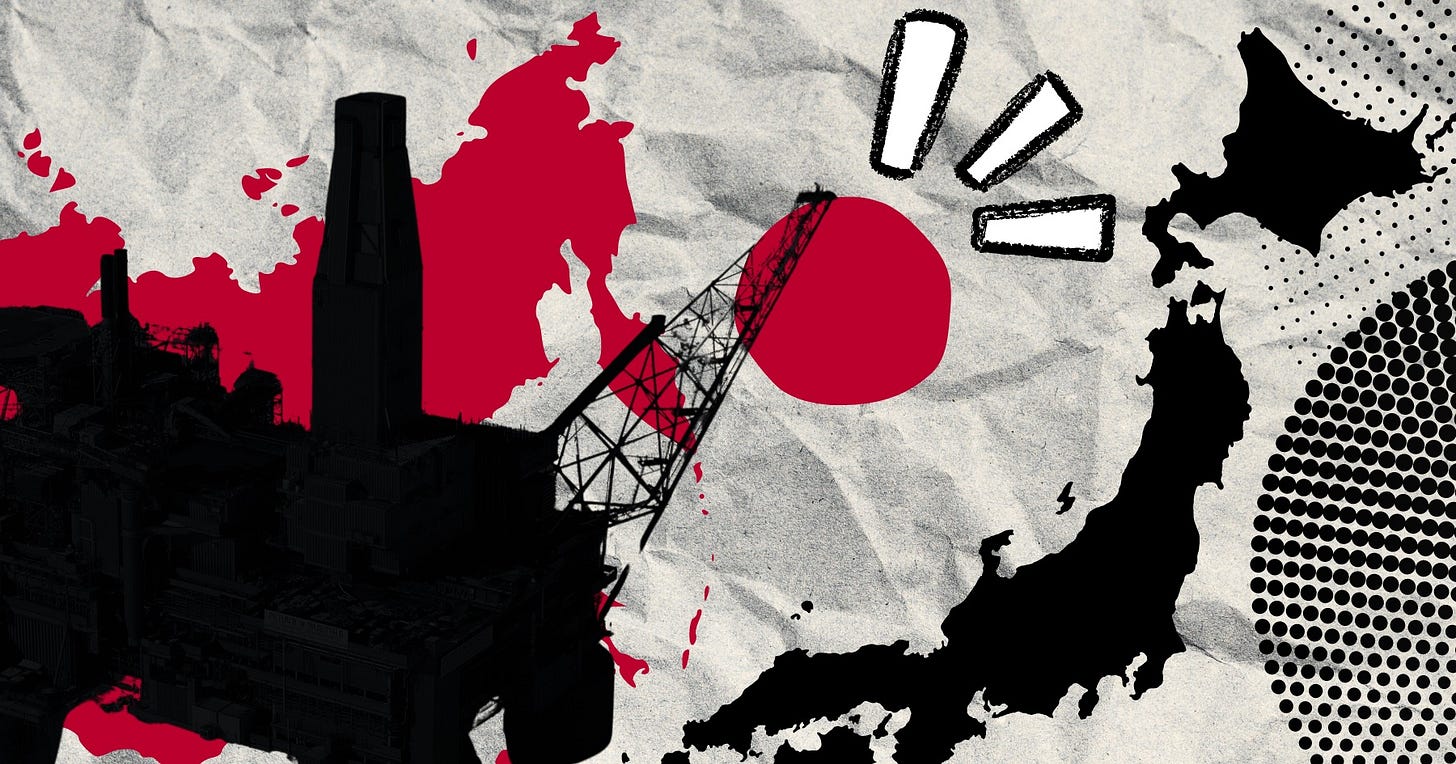Japan’s clenched fist around Russian LNG
How energy security trumped rules-based international order
This is the second article in a series of articles on Japan's LNG strategy. The first article looked at the historical evolution of its LNG import and investment strategy since the 1970s.
By definition, there aren’t many “black swan” events in history. Russia’s invasion of Ukraine that began on February 24, 2022 is one such black swan event.
It’s also an event that truly tested the energy security of countries that are dependent on fuel imports. That, of course, includes Japan.
As part of this series of posts on Japan’s LNG strategy, I want to focus on how Japan’s LNG diplomacy has responded to the Russia-Ukraine war. How did Russia's invasion of Ukraine and the ensuing shortage of global LNG supplies affect Japan's LNG strategy? What did the war reveal about Japan's outlook toward Russia as one of its LNG suppliers?
Japan-Russia energy diplomacy
Japan and Russia are uneasy neighbors.1 Geographically, Russia is Japan’s closest neighbor. Cape Crillon on Russia’s Sakhalin island and Cape Sōya in Hokkaido are only 45 km (28 miles) away. But rubbing shoulders hasn’t turned the two countries into friends.
Since the mid-19th century, the two countries signed several treaties that first delimited and then shifted the border between them. When the Soviet Union joined the Pacific War during WW2 on August 9, 1945, it unilaterally abolished the USSR-Japan Neutrality Pact and declared war on Japan. Soviet troops proceeded to occupy the four islands north of Hokkaido (what Japan calls its Northern Territories and known as Southern Kuriles in Russia). Roughly 17,000 Japanese residents were forced to flee to Japan proper.
The security relationship between Russia and Japan has most prominently been marked by this very territorial dispute. Since the end of the Neutrality Pact, a peace treaty has never been reached even after the Cold War ended. Despite several attempts at solving this dispute, Russia still administers the islands while Japan still claims them.
Unlike their security ties, their economic relationship has strengthened over time but has occupied a relatively minor position in Japan’s total trade. Starting with the Japan-Soviet Economic Committee, where businesspeople from both countries held regular meetings to promote joint investment projects, the private sectors brought the Russia and Japan closer together. Even then, Russia only Japan’s 15th most important trading partner in 2021.
And as this chart from Observatory of Economic Complexity shows, there’s a clear asymmetry in the types of goods that each country exports to the other. Whereas Russia offers many kinds of natural resources — led by fossil fuels and minerals — Japan provides high-value-added manufactured goods.

Prime Minister Abe Shinzo tried to foster a closer diplomatic and economic relationship with Vladimir Putin. From 2016 to 2019, fifteen Japan-Russia summit meetings were held, Abe visited Russia eight times, and many economic agreements between the two governments and the private sector were signed.
Among those economic agreements, energy was by far the most important. Cooperation over a particular LNG project — Arctic LNG-2, a gas project in the Arctic Circle — was a centerpiece of these agreements. They also included cooperation on LNG transshipment terminal projects, joint exploration in the southwestern waters of the Sakhalin Island and eastern Siberia, and cooperation in the development and transport of coal in the Far East. Needless to say, Japan perceived fuel imports from Russia to be critical for its own energy security.
Keep reading with a 7-day free trial
Subscribe to Power Japan to keep reading this post and get 7 days of free access to the full post archives.





